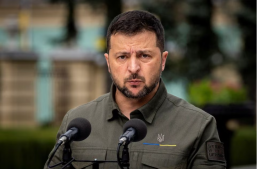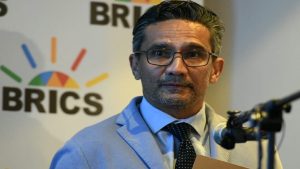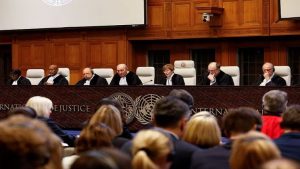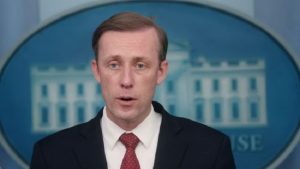The war in Ukraine has dented Russia’s confidence in its conventional forces and increased the importance to Moscow of non-strategic nuclear weapons (NSNWs) as a means of deterring and defeating NATO in a potential future conflict, a leading Western think-tank said on Monday.
NSNWs include all nuclear weapons with a range of up to 5 500 km (3 400 miles), starting with tactical arms designed for use on the battlefield – as opposed to longer-range strategic nuclear weapons that Russia or the US could use to strike each other’s homeland.
A report by the International Institute for Strategic Studies (IISS) raised the question of whether Russia might be emboldened to fire a NSNW in the belief that the West lacks the resolve to deliver a nuclear response. It said the logic of using an NSNW would be to escalate a conflict in a controlled fashion, “either to prevent the US and NATO from engaging or to coerce them into war termination on Russian terms”.
Moscow denies wielding nuclear threats but several of President Vladimir Putin’s statements since the onset of the war in Ukraine have been interpreted as such in the West – starting on day one of the Russian invasion when he warned of “consequences that you have never faced in your history” for anyone who tried to hinder or threaten Russia.
His warnings, however, have not prevented the US and its NATO allies from providing massive military aid to Ukraine including advanced weapons systems that were unthinkable at the start of the war.
Putin has resisted hawkish calls to alter Russia’s stated doctrine, which allows for nuclear use in the event of “aggression against the Russian Federation with conventional weapons when the very existence of the state is threatened”. But he has shifted Russia’s stance on key nuclear treaties and said he is deploying tactical nuclear weapons in Belarus.
Western analysts and policymakers have been closely tracking a debate among Russian military experts about whether Moscow should lower its threshold for nuclear use. William Alberque, author of the IISS report, said Karaganov was part of a wider discussion in Russia on the failure of its military to win the Ukraine war decisively and quickly.
He told reporters that Western intelligence would be able to pick up several signals if Russia was preparing to launch an NSNW. These would include the movement of weapons from a central storage facility to an air base, and possibly conventional strikes near the planned target area to cripple radar and anti-missile defenses.
Putin at that point would probably move to a nuclear shelter and put Russia’s entire nuclear command and control system on high alert in case of a major nuclear response by the United States, he said. Alberque said any Russian use of NSNW would require Moscow to calculate the right “dose” to coerce its adversaries to back down rather than triggering a cycle of escalation.






